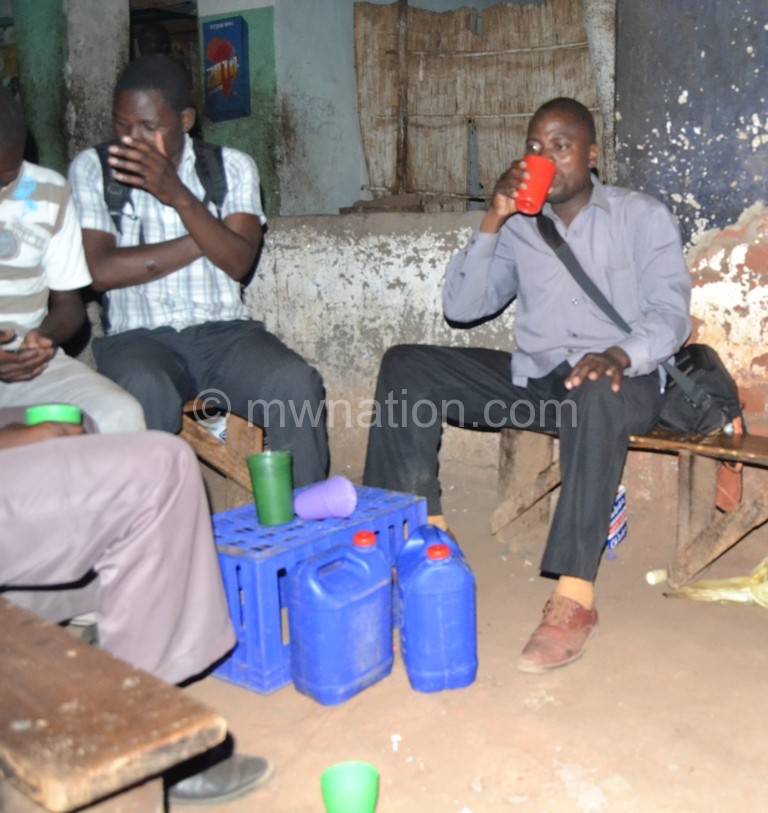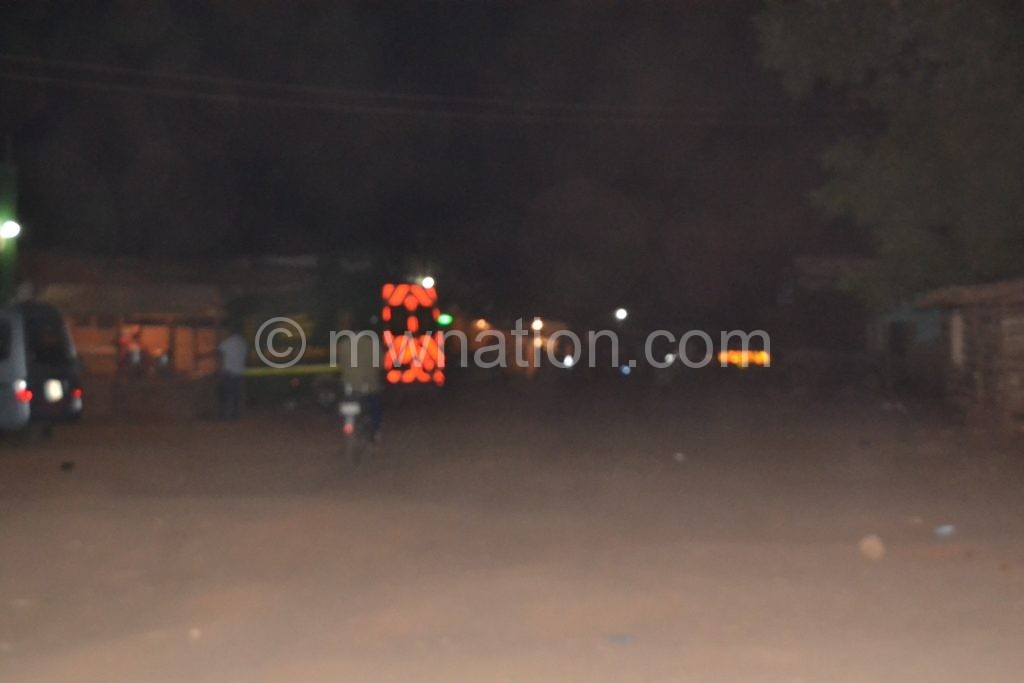Mponela: The town that never sleeps
It is Thursday evening and the time has just gone a few minutes after 8pm and I am at Mponela Trading Centre, particularly Mponela Tavern.
In my right hand is a tumbler filled with my favourite beer, Chibuku , with which I am quenching my thirst while struggling to catch a clear glimpse of nightlife here.

The market is covered in total darkness, thanks to failure by the electricity supplier to do the work for which it was established and mandated.
Of course, some enterprising bar owners have powered their drinking joints using generators. But the noise coming from these generators are making interaction between imbibers a huge challenge.
One needs to shout on top of his voice to be heard. All in all, I am enjoying myself, and I am happy to be here.
I have been joined by two other fun seekers in emptying this five-litre can.

Well, some have nicknamed this can as Pasavute because it has proven to be handy when a pocket cannot sustain one’s drinking spree.
Except for me, all the other drinkers are residents here. They have just told me that they all work for one of the parastatal companies at Mponela Trading Centre.
In different shapes, sizes and ages, a legion of men and women, girls and boys are flocking to the centre, particularly the site that accommodates drinking joints, to partake in what this night offers.
I take a risk to stroll through the inside of the market just to check if there is also life there.
Unbelievable! At this otherwise late hour, a village of men and women are still up and busy running their businesses.
Restaurants are fully open. Some vendors are in their shelters selling fruits such as mangoes, bananas, and other perishable goods.
“Lowani bwana nsima ilipo K500 yokha basi.(Please, come in. We have nsima at K500 only),” women shout.
Politely, I decline their invitation. Of course, I am hungry and would be happy to throw a few morsels into my belly.
But my pocket cannot allow it. I only have K230 in my pocket. So, I choose to return to the tavern to continue drinking.
I take relief in the fact that the beer I am taking tonight is a meal in its own right. Thus, I will not drop dead because I consumed beer without eating.
Immediately I settled on the plank that serves as a chair, one imbiber in our group – a Mr. Banda – introduces me to two additional friends of his.
“They, too, are workmates,” says Banda.
“I see! Nice to meet you, sirs! I am….and I live in one of the high density areas of Lilongwe,” I say while extending my right hand to shake them.
“I am told the water board stopped supplying you with water. Is it because you were failing to pay the bills? Why can’t you just come here [to Mponela] where we stopped worrying about piped water?” jokes a Mr. Phiri.
“My brother, it’s not about bill payments. But the water board cannot pump enough because of the lowering water levels,” I answer.
Phiri interrupts. He believes this is where our problem as a nation starts from.
“When we have more rains resulting into flooding, the electricity supplier switches us off claiming mud has blocked their machines. When there is less rainfall, they switch us off claiming machines have stopped running because water levels are low.
“So, which is better? Low rainfall that will result into water boards failing to supply water or flooding that will result into the rising of the water table?” he asks.
Banda interrupts to notify us that the can I had bought is now empty. He reaches out to his workmates for contributions towards the purchase of another one.
In no minutes, Rose – the tavern mama (beer seller) – is invited. She exchanges a few notes with our friend, John.
She then dashes back into her storeroom from where she brings two Chibuku packets, but I object.
“This won’t last us long. Let us contribute more so that we buy another 5-litre can,” I suggest. They agree.
I check my time on the phone, and it fast approaching 12 am. The number of girls and women roaming about in search of business is growing steadily.
They have suddenly switched their allegiance to motorists who have parked their vehicles by the roadside to join us help beer brewers generate more taxes for government.
I call Rose for a small discussion. In fact, my pocket is dry. But more beer is needed so that we should continue chatting.
“Would you please give me one can on credit? I have some money in my mobile money wallet. I will cash out first thing tomorrow morning,” I negotiate.
“Mawa kapena lero. Mwayiwala kuti ndi 2 koloko tsano? Poti mwaonetsa kukhulupirika pogula mowa, ndikupatsani (We are already two hours into the new day. So, why say you will pay tomorrow? Because you have been faithful in buying, I will give you),” she says, as I feel pity for myself for failing to check time.





